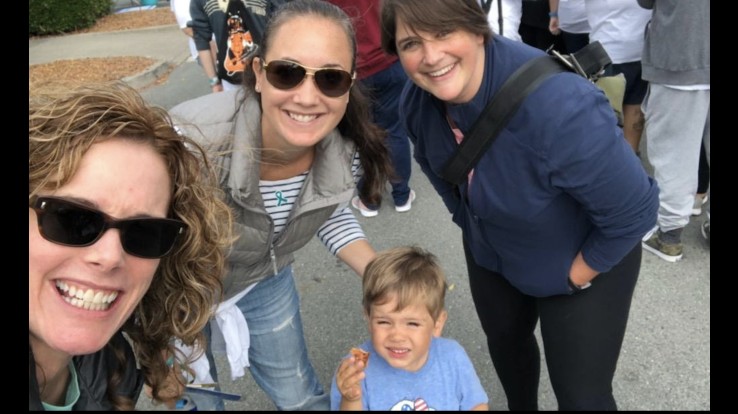Submitted on September 16, 2019

Hillary Copp, MD, MS and Lindsay Hampson, MD, MAS, along with other UCSF patients and caregivers, participated in Spina Bifida Association’s Walk and Roll held in Walnut Creek this month. The team was able to raise $2,200.
Spina Bifida is a birth defect that affects the development of the baby’s spinal cord, spine, and developing brain. The most common and most severe form of spina bifida is called Myelomeningocele. The abnormality can take place anywhere along the spine, and it causes a portion of the spinal cord and adjacent structures to develop outside, instead of inside, the baby’s body.
UCSF’s Spina Bifida program is one of only a few programs in Northern California to offer a comprehensive medical and social support for the treatment of infants, children and adolescents with spina bifida and other spinal birth defects involving exposed vertebrae. UCSF's multidisciplinary clinic provides care from medical professionals including those in neurosurgery, urology, orthopedics, pediatric physical medicine and rehabilitation, pediatric development and behavior, nutrition, nursing and social work.
As Spina Bifida is managed differently when a child transitions to adult, Drs. Copp and Hampson launched The Transitional Urology Program at UCSF. This joint effort between UCSF Pediatric and Adult Urology cares for young adults with congenital urologic conditions that will require long-term urologic care. The cornerstone is a Transitional Urology Clinic that aims to provide uninterrupted, comprehensive urologic follow-up healthcare needed.
Fundraising cut off is January 1, 2020 and donations can be gifted here.